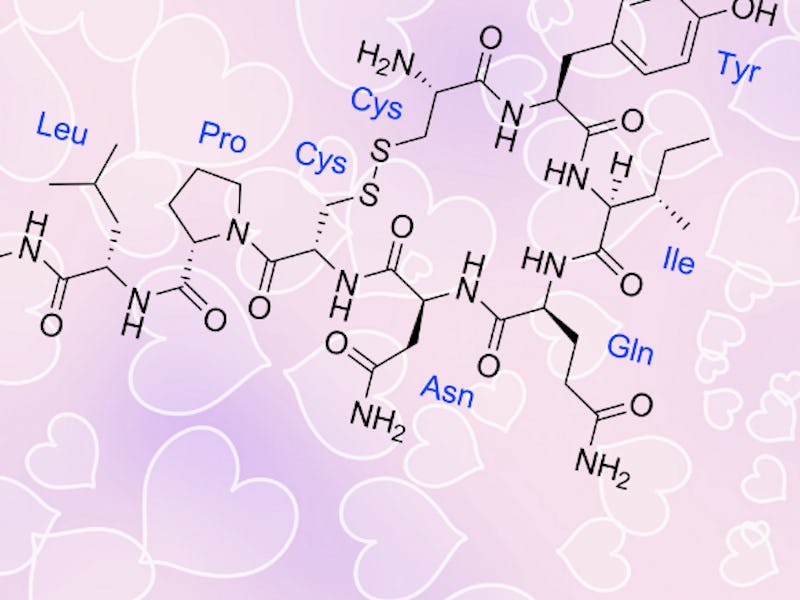
Oxytocin is a peptide hormone capable of sending you into a dither of sexual love and cuddle-bug instincts. It also has the potential to become a treatment for drug addiction, especially those afflicted by opioids.
A team of researchers from the University of London recently argued in the British Journal of Pharmacology that the oxytocin system should be further studied for its potential to treat opioid addiction and prevent relapses. They make their case using the data in their review of what they claim is “all the published evidence on oxytocin.”
“Our findings in the review suggest the use of oxytocin, the pro-social hormone, could be an effective therapy for the prevention of relapse to drug use in drug-dependent individuals,” said senior author Dr. Alexis Bailey in a statement. “Since the evidence is so clear, the need for more clinical studies looking into this is obvious.”
Also known by the slightly problematic moniker as “the love drug,” oxytocin is known for its effect on the brain’s reward system and on the way we process social affiliation, bonding, stress, learning, and memory. Research has shown that the oxytocin system is particularly affected by opioid use because of the role oxytocin plays in addiction: Scientists believe that addictive behavior may indicate low levels of oxytocin. The idea is that if there isn’t enough oxytocin in a person’s system, they may seek to have the feelings that oxytocin induces through external means.
Prescription opioids like Vicodin, which contains hydrocodone, have become a U.S. epidemic.
It doesn’t look like oxytocin can be used in an abusive way or has the potential to cause addiction, which is partially why these researchers advocate for its use over other potential therapeutic drugs, like marijuana. Because addictions are linked to long-term emotional impairment and a neurochemical-fuelled drive to return to the addictive substance, a drug like oxytocin (which is nonaddictive and is linked to happiness) could be revolutionary.
“Preclinical and clinical evidence clearly indicates the potential of OT [oxytocin treatment] as an effective next generation treatment for opioid addiction and comorbid mood disorders, as well as prevention of relapse,” the authors write. “Therefore, there is a need for future clinical studies to directly assess the effect of OT-based pharmacotherapies on the different stages of opioids addictions and to determine doses that would avoid any detrimental side effects.”
Oxytocin has been used to effectively treat addictions before: In 2016, scientists found that oxytocin could curb the impulsive need to overeat. With opioid addiction causing greater harm to Americans than ever before, the great hope is that oxytocin will prove to have the same consistent effect on the people who might need it most urgently.